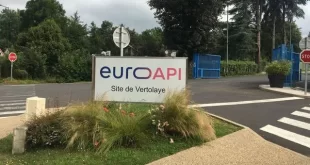Introduction
Coventry University is inviting applications from suitably qualified UK computer science, game design, and electronic engineering graduates who have an interest in human-computer interaction and human factors for an exciting Dstl funded PhD studentship opportunity within our National Transport Design Centre (NTDC). The research will address how humans interpret extended reality (XR) information, which includes augmented (AR) and virtual reality (VR), intended to improve team performance and enhance training for maintenance of future vehicles.
Project details
The NTDC was launched in 2017 where we employ state-of-the-art visualisation and simulation techniques, and design tools to address future mobility challenges from bicycles, through autonomous cars to eVTOL aircraft. You will have the opportunity to work alongside our team of human factors experts, psychologists, designers and engineering experts who have led impactful AR / VR research. Including the development of customer experience AR / VR applications for the world’s first urban air transport hub, and the design and evaluation of novel AR displays for future commercial aviation cockpits. NTDC works closely with industry, presenting excellent opportunities for collaboration and the development of impactful research. See out LinkedIn pages at https://www.linkedin.com/company/ntdc/.
The UK needs to invest in technologies for electrification, meaning many employers and employees will need to upskill, reskill and new-skill to meet the demand of delivering the future vehicles of the electric revolution. New technologies and a skilled workforce are both essential to meet the associated challenges of this fundamental industrial shift. Correspondingly, the current proposal will investigate the efficacy of head-worn XR technology applications, designed with a user-centric design (UCD) approach, for improving team performance and training of electrification maintenance skills.
The research addresses a requirement for Dstl’s Future Workforce and Training Programme. Specifically, to identify, develop and test novel human systems integration (HMI) and UCD approaches, in order to enable pan-defence users to understand and develop robust and/or novel approaches to achieving superiority through its people capability.
The research will make a significant scientific contributions through iterative UCD processes that will: 1) Identify the learner-requirements of electrification training programs, and 2) iteratively evaluate and refine XR prototypes that are designed to meet learner-requirements and improve team performance. More broadly, the outputs of this novel research will build upon and add to the body of XR design guidance literature, stimulate further work, and inform future defence HMI and UCD processes.
Funding
This is a fully funded doctorate for 3.5 years in duration, with tuition fees covered and bursary / stipend paid.
Collaboration with DSTL (Defence Science and Technology Laborator)
Benefits
The successful candidate will receive comprehensive research training including technical, personal and professional skills.
All researchers at Coventry University (from PhD to Professor) are part of the Doctoral College and Centre for Research Capability and Development, which provides support with high-quality training and career development activities.
Entry requirements
- A minimum of a 2:1 first degree in a relevant discipline/subject area with a minimum 60% mark in the project element or equivalent with a minimum 60% overall module average.
PLUS
- The potential to engage in innovative research and to complete the PhD within a 3.5 years.
- A minimum of English language proficiency (IELTS academic overall minimum score of 7.0 with a minimum of 6.5 in each component).
Additional specifications
You will work with your supervisors and an assigned Dstl Technical Partner, who will visit Coventry NTDC twice a year for up to two days per visit. You will be expected to attend an “induction to Defence” day at one of the Dstl sites in early 2025 (Date TBC) and attend up to 2 days a year supporting Dstl events. You will also have the opportunity to travel to conferences to present your results.
How to apply
To find out more about the project, please contact:
All applications require full supporting documentation, a covering letter, plus a 1000-word supporting statement showing how the applicant’s expertise and interests are relevant to the project.
Caractéristiques de l'emploi
| Catégorie emploi | Doctorat |
 Etudes Non Stop Etudes Non Stop
Etudes Non Stop Etudes Non Stop



